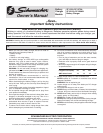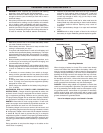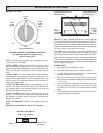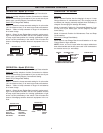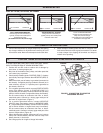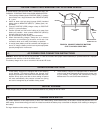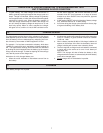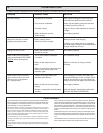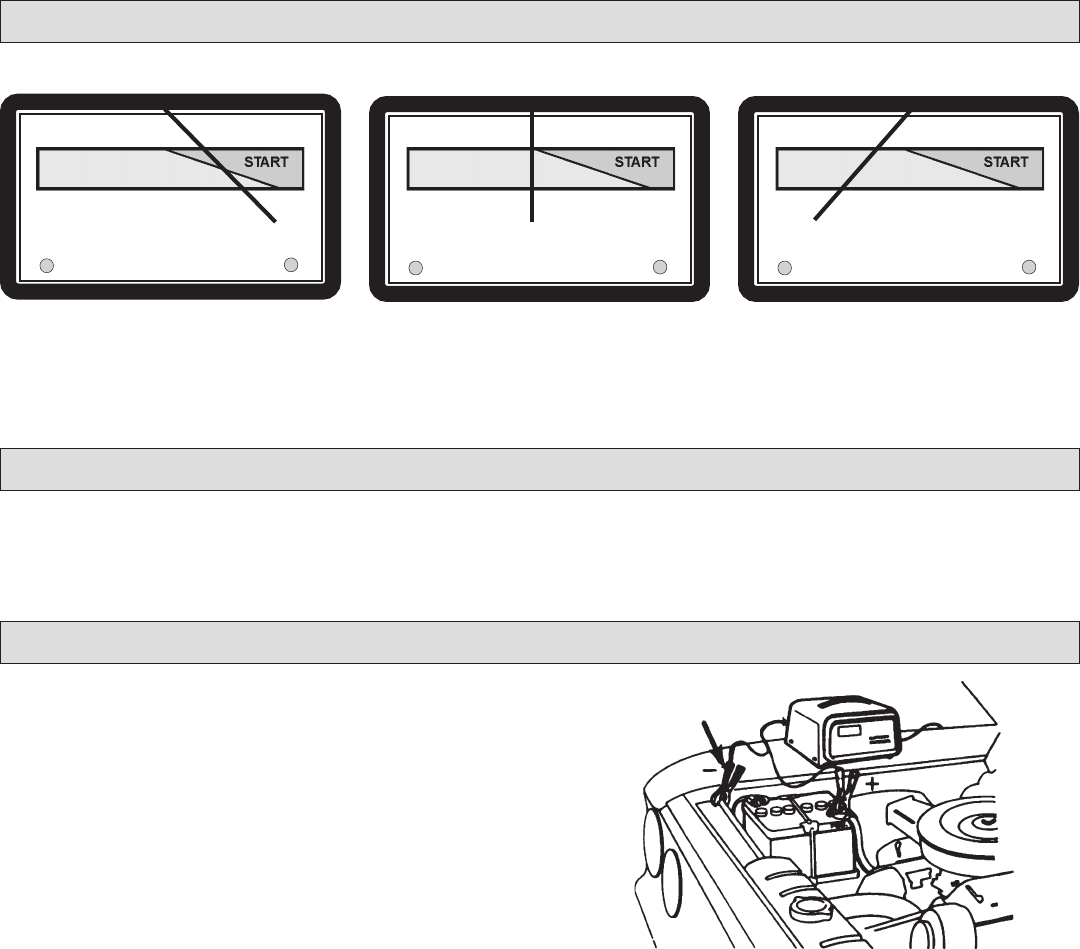
5
FIGURE 7 CONNECTION TO NEGATIVE
GROUNDED BATTERY
POWER ONFULL CHARGE
CHARGE % 100 75 50 25 0
APPROACHES FULL CHARGE
Charge current to the battery is
typically 5 amps. The needle points
toward the 100% mark.
FULLY DISCHARGED BATTERY
Initial charge current to the battery is
typically 10 amps. The needle points
toward the 25% mark.
(SF-520MA has one LED, Full Charge)
FULLY CHARGED BATTERY
Charge current to the battery is 0
amps. And, the Full Charge
green LED glows. The needle points
toward the Full Charge LED.
FOR: SF-1275A, SF-5212A, SF-520MA
POWER ONFULL CHARGE POWER ONFULL CHARGE
CHARGE % 100 75 50 25 0 CHARGE % 100 75 50 25 0
GROUND
(NEG)
F. READING METER
A SPARK NEAR BATTERY MAY CAUSE BATTERY EXPLO-
SION TO REDUCE RISK OF SPARK NEAR BATTERY:
1. Position AC and DC cords to reduce risk of damage by
hood, door, or moving engine part.
2. Stay clear of fan blades, belts, pulleys, and other parts that
can cause injury to persons.
3. Check polarity of battery posts. POSITIVE (POS, P,+) battery
post usually has larger diameter than NEGATIVE (NEG, N,
-) post.
4. Determine which post of battery is grounded (connected to
the chassis). If negative post is grounded to chassis (as in
most vehicles), see No. 5. If positive post is grounded to
the chassis, see No. 6.
5. For a negative-grounded vehicle, connect POSITIVE (RED)
clamp from battery charger to POSITIVE (POS, P,+)
ungrounded post of battery. Connect NEGATIVE (BLACK)
clamp to vehicle chassis or engine block away from battery.
Do not connect clamp to carburetor, fuel lines, or sheet-
metal body parts. Connect to a heavy gage metal part of
the frame or engine block. (Figure 7)
6. For a positive-grounded vehicle, connect NEGATIVE
(BLACK) clamp from battery charger to NEGATIVE (NEG,
N, -) ungrounded post of battery. Connect POSITIVE (RED)
clip to vehicle chassis or engine block away from battery.
Do not connect clamp to carburetor, fuel lines, or sheet-
mebl body parts. Connect to a heavy gage metal part of the
frame or engine block. (Figure 8)
7. When disconnecting charger, disconnect AC cord, remove
clamp from vehicle chassis, and then remove clamp from
battery terminal, in that order.
8. See charge period for length of charge information.
1. Connect and disconnect DC output camps only after setting
any charger switches to off position and removing AC cord
from electric outlet. Never allow clamps to touch each other.
G. DC CONNECTION PRECAUTIONS
2. Attach clamps to battery posts and twist or rock back and
forth several times to make a good connections This tends
to keep clamps from slipping off terminals and helps to
reduce risk of sparking.
H. FOLLOW THESE STEPS WHEN BATTERY IS INSTALLED IN VEHICLE



